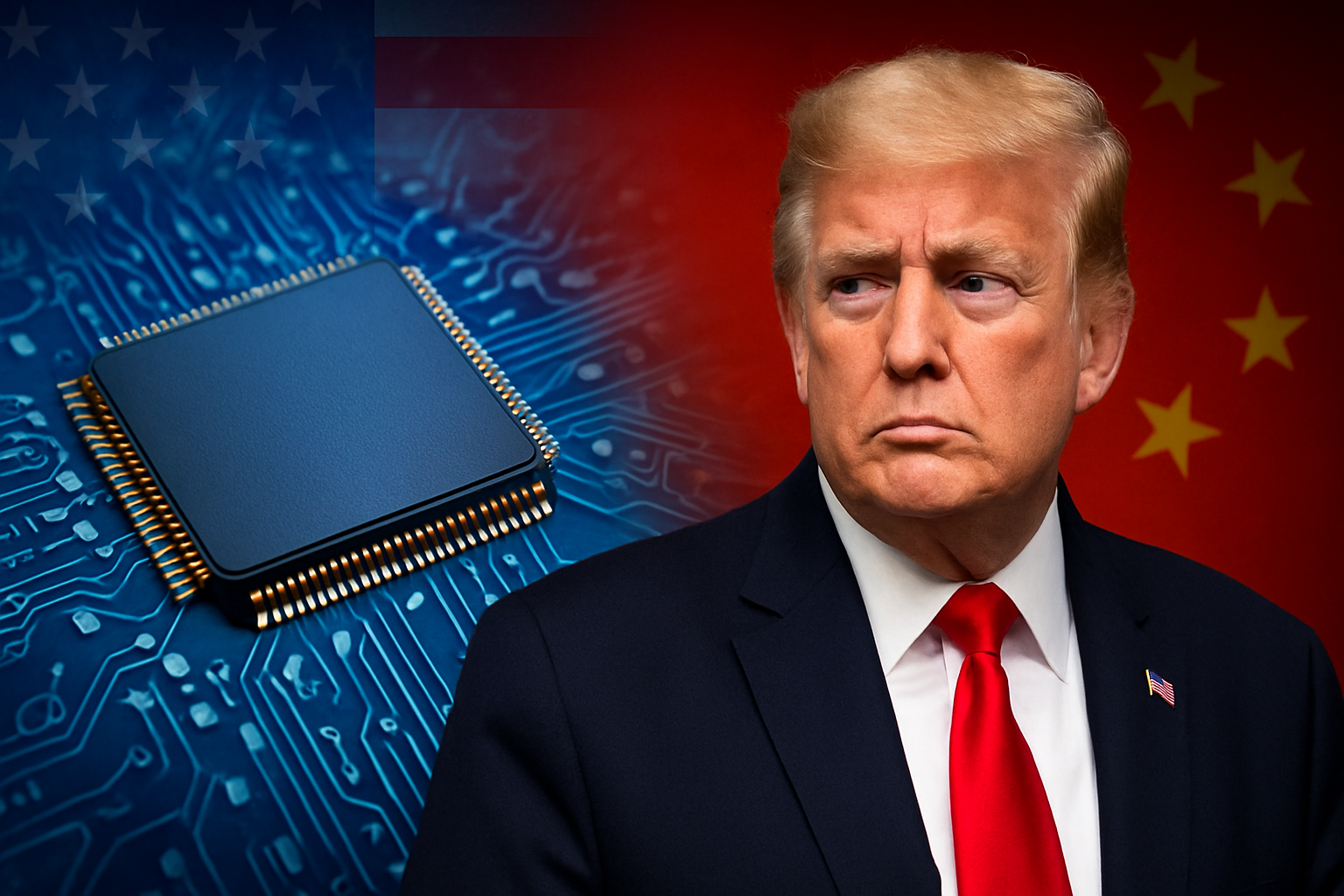In the fast evolving digital era, computing power has become the backbone of progress, shaping the way nations compete, innovate, and secure their futures. The debate surrounding Trump’s reversal on AI chips has sparked concern among policymakers, economists, and technology leaders worldwide.
At its core lies a critical question: should short term profit and business deals outweigh long term national security and technological supremacy? The United States, together with its allies, holds an unmatched advantage in semiconductor technology one of the most crucial assets in the 21st century.
Yet, critics argue that the Trump administration’s shifting stance on AI chip exports to China risks undermining this lead, potentially handing Beijing a strategic opening it has been desperately seeking.
The Strategic Importance of AI Chips
Artificial Intelligence is powered by chips sophisticated semiconductors capable of handling massive amounts of data at lightning speed. These chips are not just about powering self driving cars, advanced robotics, or consumer electronics they are at the heart of national defense, cybersecurity, and global competitiveness.
A report by McKinsey emphasized that semiconductor leadership defines national power in the same way oil once did. Whoever controls the AI chip supply chain effectively shapes the digital and economic order. With Trump’s reversal on AI chips, the US risks diluting its ability to leverage this strategic edge.
The Trump administration initially introduced restrictions to limit China’s access to cutting edge AI chips, aiming to slow Beijing’s military AI projects and ensure US companies maintained dominance.
However, recent policy shifts suggest a more permissive export environment, opening doors for American firms to sell advanced chips to Chinese buyers.
On the surface, this move seems like a win for U.S. corporations eager to expand their market share. But in reality, it could weaken America’s long term security. Tech leaders and policy analysts have likened it to selling the blueprint of tomorrow’s power to a rival nation.
Dr. Laura Chen, a geopolitical technology expert at Stanford University, argues, Restricting China from accessing advanced semiconductors is not just an economic strategy it’s a matter of national security.
Trump’s reversal on AI chips could accelerate China’s AI capabilities, making it harder for the US to maintain its lead.
Similarly, James Miller, a former Pentagon adviser, highlighted that allowing sales may provide American companies short term revenue but undermines the broader goal of limiting adversaries’ technological rise.
He compared it to the Cold War era, when technology embargoes prevented rivals from accessing critical defense enabling innovations.
The Huawei Precedent
The US ban on Huawei in 2019 provides a powerful case study. By restricting access to advanced semiconductors, Huawei’s smartphone and 5G businesses suffered significantly, shrinking its global market dominance. Analysts widely agree this move successfully slowed China’s technological momentum.
Now, with Trump’s reversal on AI chips, critics warn the US may undo the leverage it once held. Instead of crippling China’s AI industry, this policy could fuel its resurgence, enabling state backed firms to accelerate innovation and close the gap with Western rivals.
Mark Edwards, a Silicon Valley chip designer, recalls the atmosphere inside his company when the export restrictions were first imposed. We were frustrated at first because it meant losing big contracts with Chinese firms. But over time, we realized the restrictions gave us breathing room.
We could invest more in R&D without worrying that our breakthroughs would immediately be copied or reverse engineered. For professionals like Edwards,
Trump’s reversal on AI chips feels like déjà vu undoing years of carefully crafted strategies aimed at protecting American intellectual property.
US chipmakers stand to earn billions in immediate sales to China, a massive consumer market. By empowering Chinese firms with advanced hardware, the US risks fueling the very competition it sought to suppress.
AI chips power autonomous weapons, surveillance systems, and cyberwarfare tools. Selling them could inadvertently enhance China’s military capabilities. If China catches up technologically, the US risks losing not only dominance in AI but also the ability to set global standards.
This trade off highlights the tension between Wall Street and Washington. While corporations seek quarterly profits, governments must think in decades.
Global Reactions and Implications
Allies like Japan, Taiwan, and South Korea key players in the chip ecosystem have raised quiet concerns. A senior executive at TSMC noted that inconsistent US policy creates uncertainty, making it harder for allies to align strategies.
Meanwhile, European Union officials stress the need for strategic autonomy in semiconductors, hinting that they may tighten their own export policies if Washington continues to flip flop.
Instead of reversing restrictions, experts propose a dual strategy, Invest heavily in US chip manufacturing capacity, reducing dependence on Asia based fabs. Allied Coordination Work closely with partners like Taiwan, Japan, and the Netherlands to form a unified export control regime.
R&D Prioritization Funnel revenue back into research, ensuring the US maintains a generational lead in semiconductor innovation. Balanced Trade Policies Allow limited, low risk chip exports while safeguarding the most advanced technologies.
At its heart, the controversy over Trump’s reversal on AI chips is about how nations prepare for the future. Do they chase quick profits, or do they safeguard their strategic advantages for the decades ahead? History shows that once technological leadership is lost, regaining it is almost impossible.
The US today stands at a crossroads. By prioritizing immediate corporate gains, it risks undermining the very foundation of its global power.
If America’s edge in AI chips slips away, the consequences could extend far beyond the tech sector reshaping geopolitics, economies, and even security for generations to come.

